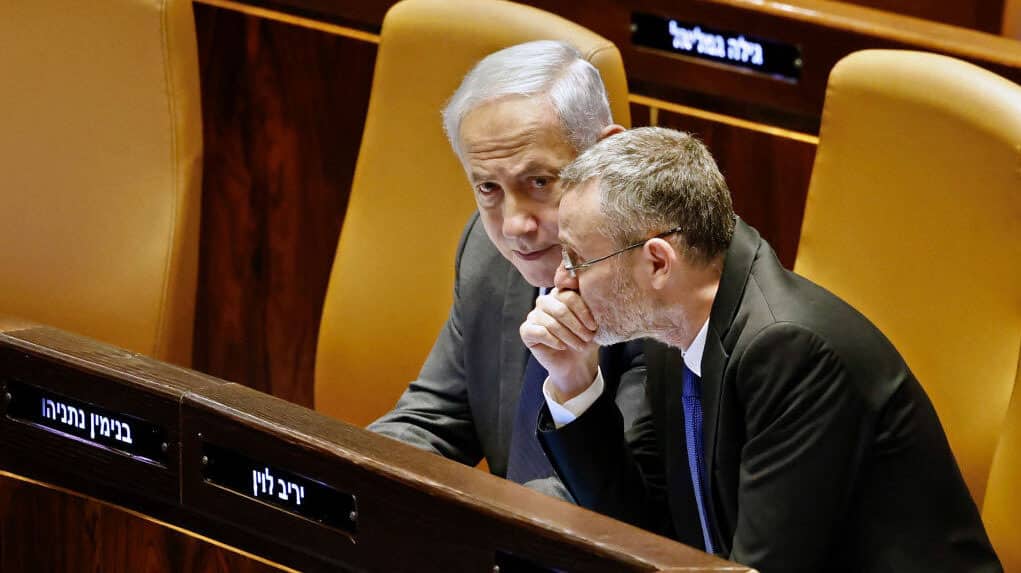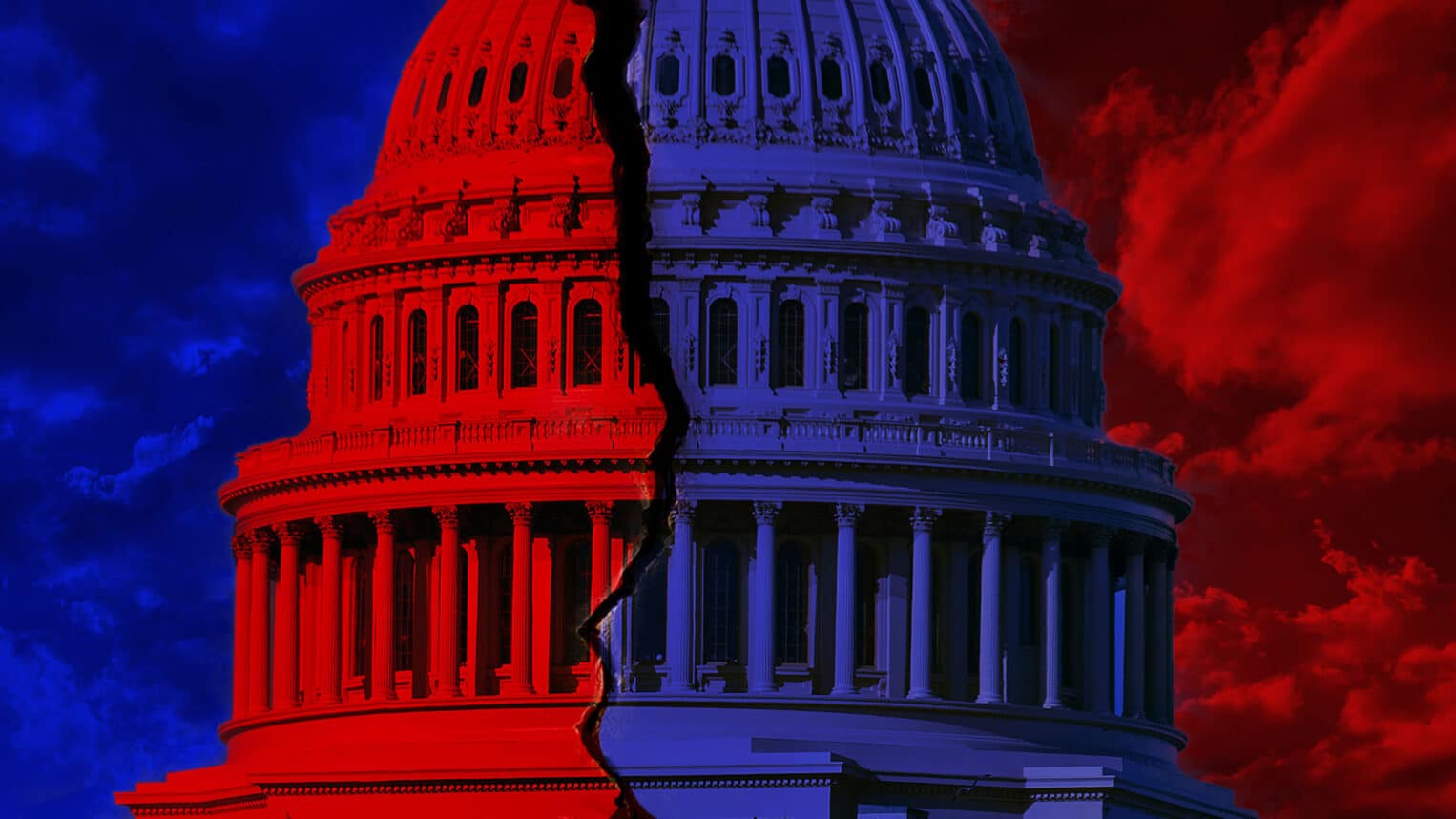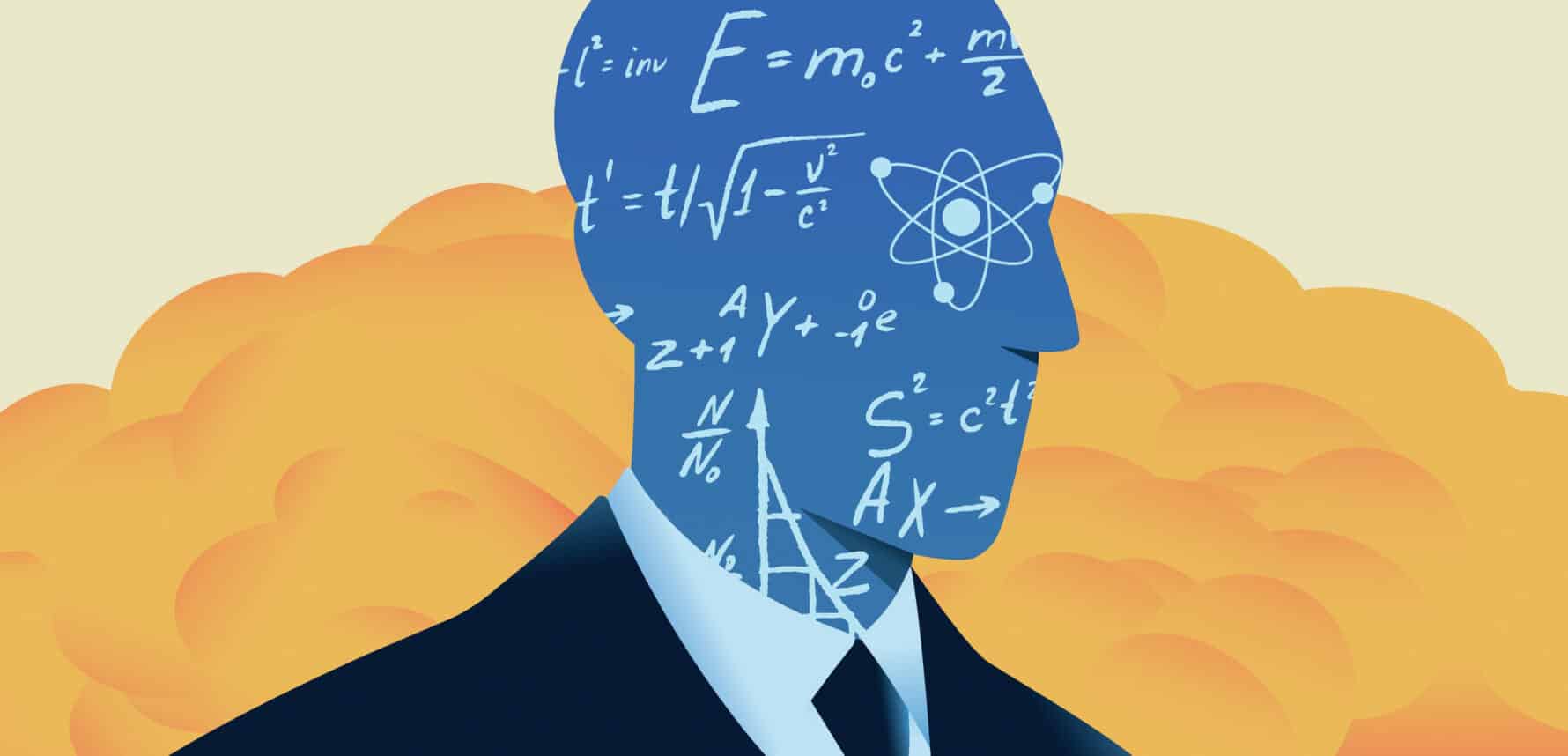 Israeli Prime Minister Benjamin Netanyahu (L) sits at the Knesset, Israel’s parliament in Jerusalem, on March 27, 2023. (Photo by MARC ISRAEL SELLEM/AFP via Getty Images)
Israeli Prime Minister Benjamin Netanyahu (L) sits at the Knesset, Israel’s parliament in Jerusalem, on March 27, 2023. (Photo by MARC ISRAEL SELLEM/AFP via Getty Images)
To read more articles from The Media Line, click here.
Israeli Prime Minister Binyamin Netanyahu announced in a nationally televised address Monday night that the government would pause the judicial reform legislation making its way through the country’s parliament.
Netanyahu said he would suspend the progress of the legislation through Israel’s parliament out of a sense of “national responsibility” and the desire to prevent a “civil war,” in order to give lawmakers “time to try and reach broad agreement, in preparation for the legislation during the next Knesset.”
The announcement came hours after a day in Israel that saw a far-reaching general strike – including hospitals and banks – and a massive protest in front of the Knesset in Jerusalem as well as throughout the country.
Over 100,000 opponents of the judicial reform legislation protested in front of the Knesset building in Jerusalem; a counter demonstration in support of judicial reform also gathered in Jerusalem.
Following Netanyahu’s announcement, the Histadrut labor union, the largest trade union in the country, called off the mass strike. Organizers of the popular protest against the judicial reform said that the protests would continue until the plan is completely canceled.
“Our way is right. A large majority of the public today recognizes the necessity of democratic reform in the judicial system. The people cannot be robbed of their free choice. We will not give up the path for which we were elected. But an attempt will be made to achieve a broad consensus,” Netanyahu also said.
Itamar Ben-Gvir, head of the Otzma Yehudit, or Jewish Power party, which is part of the government with its six seats, reportedly had threatened to quit the government if the legislation was halted. The party announced prior to Netanyahu’s address that in exchange for the party’s support of the time out the prime minister agreed to the formation of a civil National Guard to boost public safety that would be placed under Ben-Gvir’s National Security Ministry
The goal of the tens of thousands of Israelis who protested in the streets of Jerusalem on Monday, gathering in front of the Supreme Court and the Knesset, was to strong-arm Netanyahu into halting the sweeping judicial reforms that have sparked one of the most heated debates Israelis have ever had. Netanyahu delayed his announcement for several hours on Monday as he worked to receive the backing of his coalition partners.
As part of the massive public strike, the country’s main international airport shut down, shopping malls closed, banks stopped operating, and medical clinics and hospitals scaled down their activities as the feeling of chaos spread throughout the country.
The scenes of citizens lighting bonfires and blocking highways have never been seen on such a scale before in Israel. It was the culmination of months of planned protests that grew larger every week, as the coalition continued to plow forward.
The massive street protests began on Sunday night, minutes after Netanyahu fired his defense minister, Yoav Gallant, after he became the first member of Netanyahu’s Likud party to publicly break ranks and speak out against the planned judicial reforms. Gallant said in an addressed carried on television that the division over the judicial reform legislation had “penetrated the Israel Defense Forces and this is a clear, immediate and concrete danger to the security of the state. I will not lend a hand to this.” He was referring in part to the phenomenon of military reservists, including hundreds of pilots, who were refusing to show up for reserve training.
Prior to his announcement on Monday night, Netanyahu reportedly offered to cancel the firing of Gallant as defense minister if he would agree to relinquish his Knesset seat under the Norwegian law, which allows ministers to resign as lawmakers to allow more members of a party to sit in the Knesset, the KAN public broadcaster reported. This appears to be an attempt to line up more votes for the legislation when it comes to a final vote.
The general strike launched on Monday, referred to by many financial analysts in the country as the “judgement day weapon,” threatened to paralyze the Israeli economy and impose even greater strain on a society already on edge.
“We are not involved in the political struggle,” said Professor Yitshak Kreiss, director general of the Sheba Medical Center at Tel Hashomer near Tel Aviv as he announced in the morning that the hospital would begin working on a weekend schedule as part of the protests. “We are here to return the country to a sense of normalcy and the health sector in this country has a voice,” he said.
Israel’s largest trade union group had launched the multi-sector strike in an attempt to pressure the Israeli premier.
Netanyahu, who is considered to be the force behind Israel’s financial stability and success in the last decade, has appeared indifferent to the economic fallout of his proposed judicial reform policies. Leaders of the business sector, including bank CEOs and prominent high-tech entrepreneurs, have warned of an impending disaster if Israel adopts the reforms.
As Israel’s longest-serving prime minister, Netanyahu is considered a political mastermind and an experienced statesman. But he has appeared to be unfazed by the prodding of Israel’s allies to slow down.
“The longer political leaders are in power, they lose touch with the public,” said Professor Jonathan Rynhold, head of the Department of Political Studies at Bar-Ilan University.
On Sunday, the White House released a statement saying it was “deeply concerned” about developments in Israel, as demonstrators again flooded the streets.
“Israel is a strategic asset, because it is strong and reliable,” according to Rynhold. “If that cornerstone is starting to shrink, that will worry the Americans.”
For a Democratic administration in the White House, these events are especially disconcerting.
“The fact that Israel is a democracy is critical,” Rynhold told The Media Line. “The reforms will shake the basis of the special relationship and could lead the Democrats to cut financial aid to Israel.”
Israel’s relations with the Arab world are also facing challenges, which are directly related to the strain in the relationship between the US and Israel.
“Until now, Israel was seen as a door to Washington and a security anchor in the region,” said Dr. Moran Zaga, a policy fellow who is an expert on the Gulf region at Mitvim – The Israeli Institute for Regional Foreign Policies. “These have both been damaged at once. Israel has lost the effectiveness of its image in the Arab world and the motivation of countries in the region to turn to Israel diplomatically.”
Netanyahu is also under pressure from his own base. Calls for a right-wing demonstration in Jerusalem on Monday evening raised concern of violence between the sides.
“I call on all the demonstrators in Jerusalem, on the right and the left, to behave responsibly and not to act violently. We are brothers,” Netanyahu posted on his social media accounts on Monday afternoon. It was his first and only comment of the day, as he remained holed-up in his office in Jerusalem, holding marathon consultations.
Netanyahu, leader of the Likud party, heads the country’s most right-wing government ever. He formed a coalition made up of 64 Knesset lawmakers, giving him a solid majority of the 120 seats in the plenum. With the security of that majority, the coalition immediately started promoting the judicial reform legislation, which opponents refer to as a “judicial coup.” A string of dozens of different proposed laws or amendments dealing with a wide range of issues have the opposition convinced that the legislative barrage heralds an unwanted regime change.
Perhaps intoxicated by the right-wing electoral victory, Netanyahu and his political allies appear to have miscalculated their actions.
“They learned a lesson in the limits of power,” said Roni Rimon, a strategic adviser and partner at the public relations firm Rimon Cohen & Co. “The reform led people to literally fear the future of the fate of Israel.”
The coalition claims the judicial overhaul is needed in order to make Israel more democratic in a state where the Supreme Court has accumulated too much power and often inserts itself where the coalition believes it shouldn’t. Critics say the reforms will achieve the opposite and significantly weaken Israeli democracy. They also believe the move is personally motivated for Netanyahu, who is currently on trial for corruption.
The reform will increase control of the coalition over judicial appointments and reduce the Supreme Court’s ability to strike down laws passed by the Knesset.
By and large, supporters of the reform have remained at home since the demonstrations against the government began three months ago, and have not actively shown support for the judicial reforms, abandoning the public sphere to the opposition.
“We voiced our opinion at the ballot, we played our part,” said Ran Levi, a longtime Likud member who opposes Netanyahu.
Now, it might be a little too late for them.
“If we surrender today, the reform is dead and will never come back to life,” Levi added. “If that happens, we then need to topple the government and Bibi needs to go home.”
According to Levi, Netanyahu’s hold on the Likud, which has been ironclad up until now, is weakening. He also believes none of the reforms will pass, after Netanyahu caves to public pressure.
“People are not happy with his handling of things and are starting to realize he is the main problem,” Levi said. “We are facing a very unpleasant period.”
Netanyahu, credited with being a political maverick who was once frequently referred to as a “magician,” not only miscalculated the limits of his political prowess, but also the feistiness of his opponents.
“It was surprising and impossible to foresee,” Rimon said. “Netanyahu now needs to reassess and restart.”
Rimon believes the chances of the government falling are slim. The political interests of all the parties in the coalition do not align with a re-election.
Either Netanyahu now pushes forward with the reforms, regardless of mounting public anger, or he backs down. Both scenarios leave Israel unstable in the foreseeable future.
“For the protests to die down, the opposition needs to feel it won,” said Rimon. “This will also pacify external pressures and even allow the legislation to proceed but at a more measured pace.”
At the Knesset on Monday, deliberations of the Constitution, Law and Justice Committee approved the legislation dealing with the judicial selection committee for a final vote scheduled for later this week. But it appears now that this vote will not take place before the end of the current government session.
Since the Netanyahu government was sworn in late last year, committee sessions have been marred by the screaming and heckling of lawmakers on both sides, representing a reflection of the rift in Israel that has grown, with Netanyahu on the sidelines.
“This is one of those rare occasions in which the fate of Israeli politics will be shaped by the decision of one person,” Rynhold said ahead of Netanyahu’s announcement that he would pause the judicial reform. “This is one of those pivotal moments.”
Video of Jerusalem protest:
Full text of Netanyahu’s speech pausing judicial reform:
https://themedialine.org/top-stories/text-of-israeli-pm-binyamin-netanyahus-announcement-of-delay-in-judicial-reform/





















 More news and opinions than at a Shabbat dinner, right in your inbox.
More news and opinions than at a Shabbat dinner, right in your inbox.